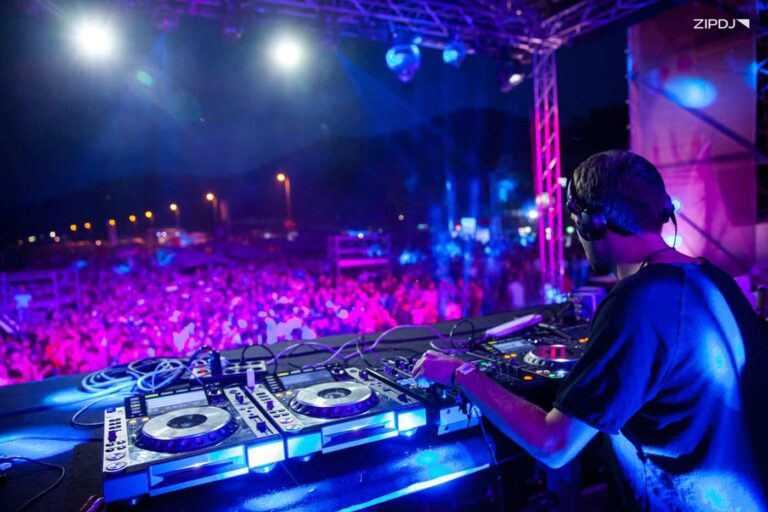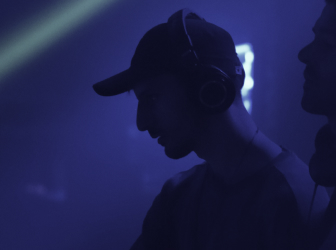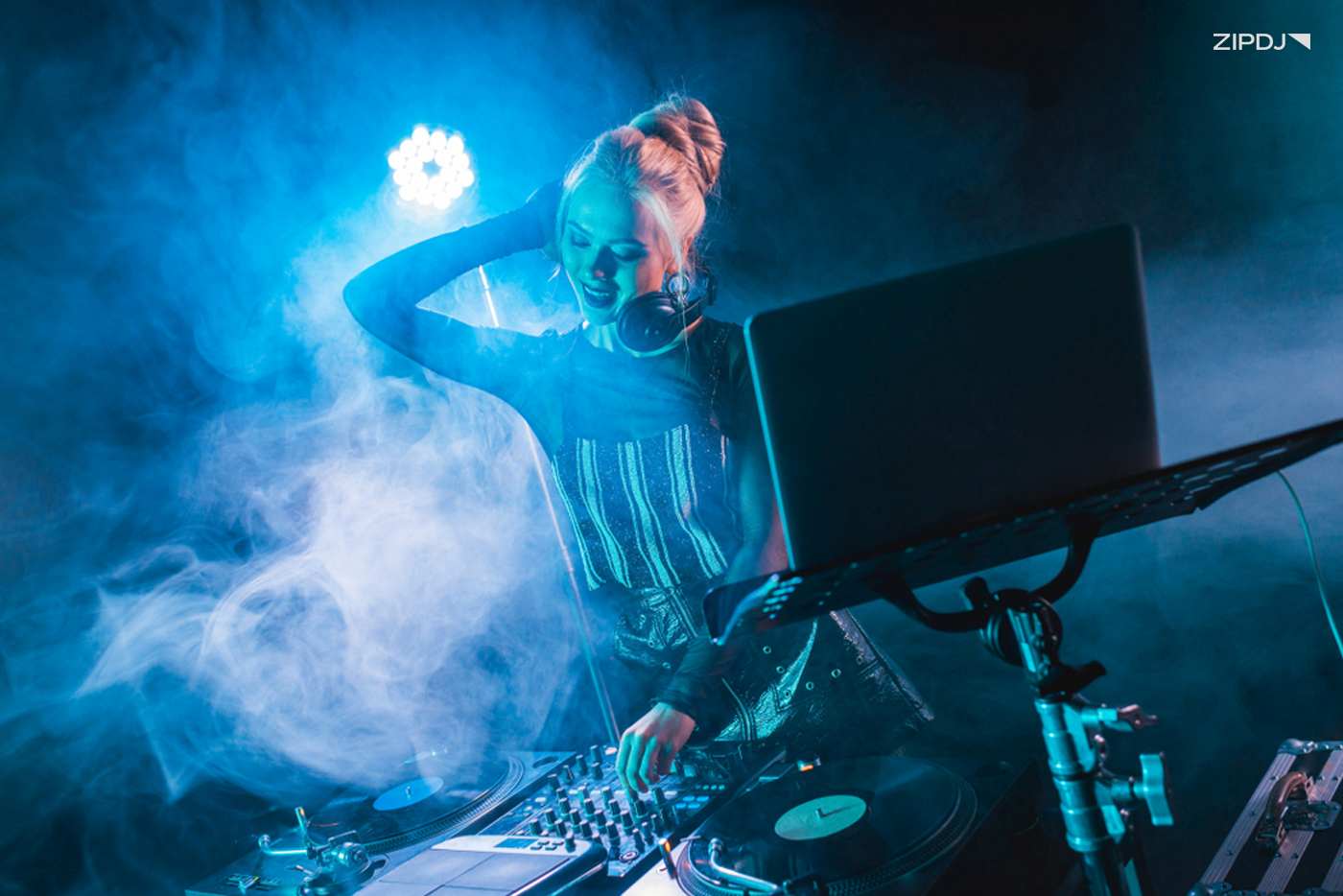How To Get Your Music Heard In 2025

Releasing music and getting it heard by the right people is a challenge all music producers face, regardless of their chosen genre.
While finding out how to get your music heard requires patience, you can try many tried and trusted methods to break into the music industry.
Here’s our complete step-by-step guide to helping independent musicians connect with record labels and promote music using their social media presence.

How To Get Your Music Heard In 2025
Whether you’re an experienced producer looking for new listeners or a newbie dipping your toes in production, getting your music heard can be hard.
To help you get started, we’ve outlined the main steps to getting your music discovered as an independent artist and launching your career.
So, whatever your goals, here are our top tips on how to get your music heard in 2025:
The Importance Of Marketing Your Music
Whether you’re hoping to make money as a DJ or become the next big techno producer, marketing is vital to success.
Without a clear and actionable plan, your music career is unlikely to take off, and your best tracks will be lost in the wilderness.
Marketing initiatives not only allow you to reach your target audience and build a loyal following, but they can also help gain the attention of professional insiders.
This means creating a plan of action that ensures your music is featured in prominent music outlets and radio stations with significant reach.
You should also take the time to stay informed about the latest music trends and access unreleased music from other musicians whenever possible.
This will help you focus your efforts where they count, joining the ranks of other music influencers and helping to shape the industry.
Get it right, and your chances of landing that dream deal with your favorite record label will significantly improve, transforming your passion into an income.
Step 1. Make Great Music
It goes without saying that you need to work on your production skills if you want to get your music heard and break into the music industry.
With many DJs becoming producers, there’s no shortage of software, hardware, and other resources for learning to master the production process.
You should be completely happy with your productions before you attempt to get your music heard and share it with record labels and social media influencers.
This means dedicating countless hours to honing your compositions, mastering aspects of engineering, and seeing how similar artists approach production.
You can try your hand at production by experimenting with mashups and remixes first before moving on to completely original tracks.
If you know any other musicians who can perform on your tracks, get them involved in the process and learn what you can from their experience.
Likewise, if you have a reasonable budget, consider investing money in professional mastering services to ensure your music has a professional sound.
Step 2: Research Your Niche Industry
Understanding the ins and outs of making beats is a small aspect of getting your music heard and promoting yourself to industry professionals.
As you spend time creating music, you should set aside opportunities to research your chosen genre and how other artists promote music.
This research is vital for channeling your time and effort when conducting promotional drives, saving potential headaches down the line.
Begin with compiling a list of musicians and producers in your niche, setting up a spreadsheet that includes links to their websites and social media profiles.
Next, build a comprehensive list of record labels in your genre that have a track record of releasing music similar to the tone and style of your tracks.
This information will lay the groundwork for everything from your branding and persona to potential artists who may be interested in collaborating.
Step 3. Craft Your Brand
Putting together a discography of impressive music means little if you can’t capture people’s attention at a glance, which is where branding comes in.
Branding includes your artist logo and other visual assets, as well as the detailed bio and mission statement that underpins your production style.
Your branding should be clear and eye-catching, with a logo that uses minimal colors and bold imagery to stand out across all media formats.
Set up a website to complement your social media presence, and apply your brand elements to the headers, logos, and other elements.
You should also set up a press kit that you can use to contact labels and venues as part of your promotional campaigns.
If you lack the graphic design skills to create your own brand, you can still sketch out plenty of ideas to pass on to a professional designer.
Step 4. Master Social Media
In addition to setting up a dedicated website for your musical persona, you should sign up for various social media profiles to engage with potential fans.
Social media profiles significantly influence how artists market themselves online, connecting with fans and professionals.
Don’t be afraid to sign up for platforms including Facebook, Twitter, TikTok, and Instagram since there are potential fans on all of them.
Each social media platform has its own pros and cons, such as Facebook’s Stories and Live features and options to share events and set up groups.
Other musicians often use websites such as Twitch for their live shows, so if you want to host virtual gigs, add this to your list of social media profiles.
Your social media profiles are vital for communicating with your fan base, gaining valuable feedback on your songs, and connecting with new talent.
Use them to build anticipation for any upcoming releases or live performances, respond to comments, and share other media coverage.
Social media is also a great way for your existing fans to reshare your work, further enhancing your online reach without having to pay any money.
Step 5. Collaborate With Other Artists
Collaboration is one of the best ways to become a DJ producer, and this approach is just as relevant for new artists when promoting music.
While it can be tempting to go it alone when becoming a music producer, building a strong network of musicians will give you an edge over the competition.
This could begin with getting musicians to play a guest role on one of your songs or bringing in a vocalist to sing on top of your productions.
It can also include becoming involved in local bands and complementing your solo work with group-based compositions and gigs.
Working with other artists also opens up new opportunities to promote music to a wider audience and bring more attendees to your live events.
Your collaborators will undoubtedly have their own network of fans, both online and offline, maximizing your reach when hearing your music.
Likewise, if you’re a talented musician who can play one or more instruments, you can speak to other producers and see if they need guest musicians.
The more you build up a network of like-minded musicians and artists, the greater potential you’ll have for breaking into the music industry and succeeding.

Step 6. Network With Industry Professionals
Just as networking with other artists and musicians is a great way to increase your reach, so too should you network with industry professionals.
This includes everyone from booking agents and venue managers in your local area to music journalists and bloggers writing in your niche.
You should also network with professionals directly in the music industry, using your list of contacts at record labels as a starting point.
If you pick up a live event or gig, this should be seized as an opportunity for forging lasting relationships through meaningful face-to-face conversations.
While emailing people is a good strategy, in-person meetings will help to leave a stronger, lasting impression and allow your personality to shine.
Likewise, social media, such as TikTok, is changing the music industry, with many industry experts using these platforms in a professional capacity.
Don’t be afraid to make the most of these channels to start conversations with your favorite producers and other artists at your favorite record labels.
If you can get the conversation going online, chances are they’ll be more likely to help you get your music heard and start your career as a new artist.
Step 7. Leverage Online Promotion Tools
With the future of music deeply intertwined with new and emerging technology, aspiring producers have many options for helping with promotion.
Social media is just one aspect of online promotion; many more tools are dedicated to music producers attempting to break into the industry.
Popular streaming platforms such as Spotify provide dedicated services for artists, with Spotify for Artists loaded with useful tools.
It can be used to create a custom profile for your new tracks, with access to critical data covering playlists, streams, and the number of followers and listeners.
Another popular tool for producers is Soundcharts, which assesses a range of data points to help you improve your marketing strategy and online reach.
There are also many great online communities for like-minded music producers to connect with one another and share their success stories.
Joining such communities – and checking out general music production forums – can make the difference between finding success and failure.
For a more professional approach to online promotion, Hubspot (CRM) offers full customer relationship support to optimize your marketing campaigns.
Step 8. Sign Up For Contests & Charity Events
Another way to get your music heard without any industry contacts is to sign up for music contests and offer your performance skills for charity events.
There are many online competitions where aspiring producers and musicians can submit their songs and compete with other artists for prizes.
Not only does this give you an opportunity to win money if you’re successful, but it’s also a good way to get your music heard by industry insiders.
If you don’t have full tracks to enter, there are contests dedicated to remixes, such as BPM Remix, which offer courses at music college for the winners.
Electronic dance music producers can sign up for Beatport’s platform and get the chance to perform at international music festivals if they win.
Alternatively, you can consider offering your performance services to charity events, whether playing in a band or performing a live music set.
Step 9. Play Live Shows
If you’ve mastered the art of remixing and have an album’s worth of completed tracks ready, it’s time to venture into live performances.
DJ producers who have a background performing in clubs are already prepared for the atmosphere and crowd expectations.
Taking electronic music to the next level and performing it live means mastering your hardware and sequencing to create a dynamic and exciting listening experience.
If you have access to projectors and impressive lighting, include these in your live shows to create an immersive experience for the audience.
Producers collaborating with other artists can consider inviting them to the show, singing exclusive songs, or adding live percussion.
Step 10. Create Music Videos
We’ve touched briefly on the importance of visual elements in our recommendations for branding and putting on impressive live shows.
You can take this principle to another level by producing music videos to accompany your new releases and as part of promotional campaigns.
Music videos are becoming increasingly significant, with major artists achieving billions of views for songs on their YouTube channel.
At the same time, streaming platforms like Spotify also allow users to add short video loops to their content that complement the sounds with visuals.
While music video production can be incredibly expensive, affordable, high-quality cameras make getting great results on a budget easy.
There are also many free-to-use editing programs to cut the video together with your music, so money is no barrier to music video production.
Summary
Getting your music heard requires creating quality music, building an online presence, and dedicating your time to active, ongoing promotion.
Follow the steps outlined in this guide, and your chances of getting your music featured in the right places will increase significantly.
The more music you create, the greater your chances of dominating streaming platforms and gaining thousands of dedicated new fans.
Not a member ?
Join Today for Unlimited Music Downloads. Visit zipdj.com for more information.



